|
|
|
|
|
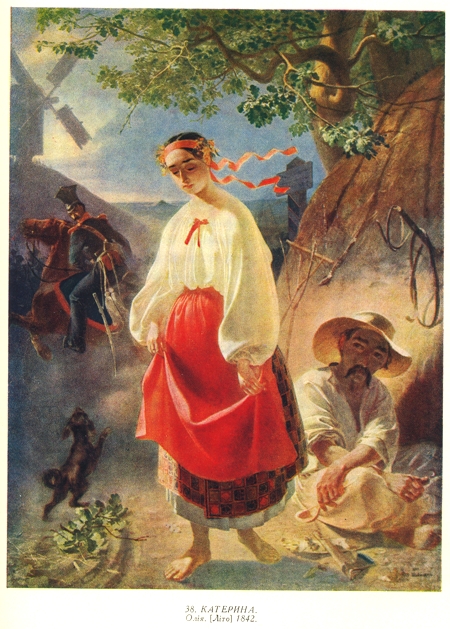 Taras Shevchenko wrote "Katerina" in 1838, in St. Petersburg, when he was 24 years old. It was in the same year that he was bought out of serfdom from Baron Englehardt by a group of St. Petersburg artists and intellectuals. This poem is dedicated to the Russian writer Zhukovsky, who posed for Karl Bryullov, the leading artist of the time. The portrait was sold for 2,500 rubles, to raise the purchase price of Taras Shevchenko’s freedom. The poem “Katerina” was first printed in the 1840 edition of “Kobzar”, and many of the passages were censored. In it, Shevchenko brings out the life of the serfs of that period, the status of women, and expresses his hatred of the tsarist regime which kept Ukraine in bondage. Taras Shevchenko wrote "Katerina" in 1838, in St. Petersburg, when he was 24 years old. It was in the same year that he was bought out of serfdom from Baron Englehardt by a group of St. Petersburg artists and intellectuals. This poem is dedicated to the Russian writer Zhukovsky, who posed for Karl Bryullov, the leading artist of the time. The portrait was sold for 2,500 rubles, to raise the purchase price of Taras Shevchenko’s freedom. The poem “Katerina” was first printed in the 1840 edition of “Kobzar”, and many of the passages were censored. In it, Shevchenko brings out the life of the serfs of that period, the status of women, and expresses his hatred of the tsarist regime which kept Ukraine in bondage.
 Taras Shevchenko's picture "Blind woman with daughter". Taras Shevchenko's picture "Blind woman with daughter".
 Taras Shevchenko - "Catherine". Taras Shevchenko - "Catherine".
 Picture by Taras Shevchenko "Blind". Picture by Taras Shevchenko "Blind".
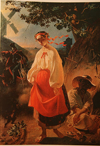 Taras Shevchenko performed a large series of artistic works, book illustrations. He was the first of Ukrainian who mastered the etching technique and created in it a number of famous compositions. Taras Shevchenko performed a large series of artistic works, book illustrations. He was the first of Ukrainian who mastered the etching technique and created in it a number of famous compositions.
You can find here illustrations which were made by Taras Shevchenko for his poems.
 "Bandurist" - illustration to Taras Shevchenko's poem "Blind" ("Captives"). "Bandurist" - illustration to Taras Shevchenko's poem "Blind" ("Captives").
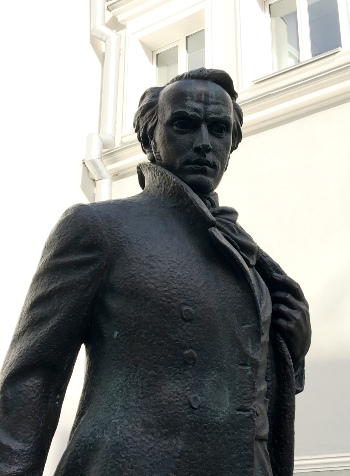 The Taras Shevchenko Museum is located in Shevchenko’s beloved Kyiv in a mansion formerly owned by a wealthy sugar magnate. This juxtaposition of housing the most comprehensive collection of artifacts, paintings and memorabilia from Shevchenko’s life, surrounded by such opulence is ironic and poignant. For Ukrainians, Shevchenko is the premiere national hero. Son of a serf, at once a novelist and a painter, a poet and a prisoner, Shevchenko was a celebrity and political figure, who finally returned home to the area near the town of Kaniv, to be buried after his death. To a new generation of Ukrainians, those born after the Soviet era, raised with a unique identity, and who came of age in the era of EuroMaidan, Shevchenko’s dream of Ukrainian freedom resonates with renewed vigor. The museum provides an opportunity for foreigners and natives alike to make his acquaintance and to draw lessons from his writings on the past and future of Ukraine. The Taras Shevchenko Museum is located in Shevchenko’s beloved Kyiv in a mansion formerly owned by a wealthy sugar magnate. This juxtaposition of housing the most comprehensive collection of artifacts, paintings and memorabilia from Shevchenko’s life, surrounded by such opulence is ironic and poignant. For Ukrainians, Shevchenko is the premiere national hero. Son of a serf, at once a novelist and a painter, a poet and a prisoner, Shevchenko was a celebrity and political figure, who finally returned home to the area near the town of Kaniv, to be buried after his death. To a new generation of Ukrainians, those born after the Soviet era, raised with a unique identity, and who came of age in the era of EuroMaidan, Shevchenko’s dream of Ukrainian freedom resonates with renewed vigor. The museum provides an opportunity for foreigners and natives alike to make his acquaintance and to draw lessons from his writings on the past and future of Ukraine.
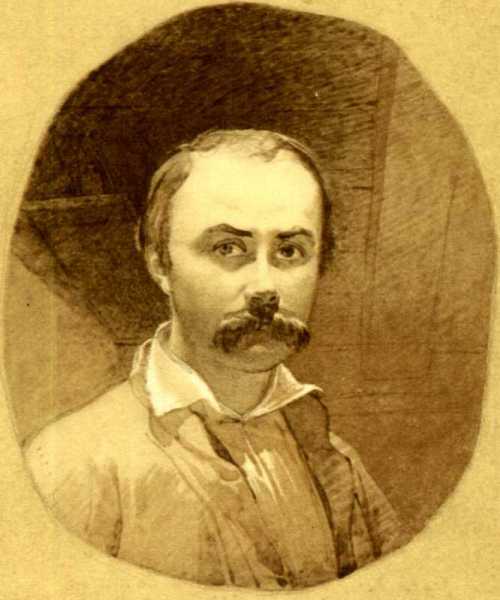 Shevchenko in Orenburg (November 1849). Sepia, paper. Shevchenko in Orenburg (November 1849). Sepia, paper.
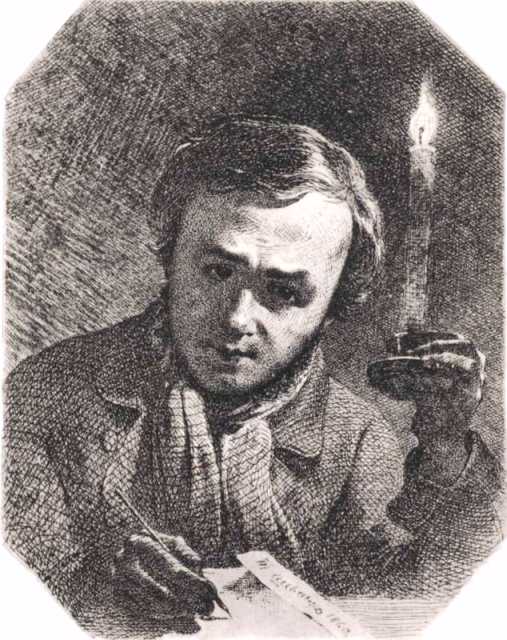 Shevchenko by candlelight (june 1860). Aquatint etching, paper. Shevchenko by candlelight (june 1860). Aquatint etching, paper.
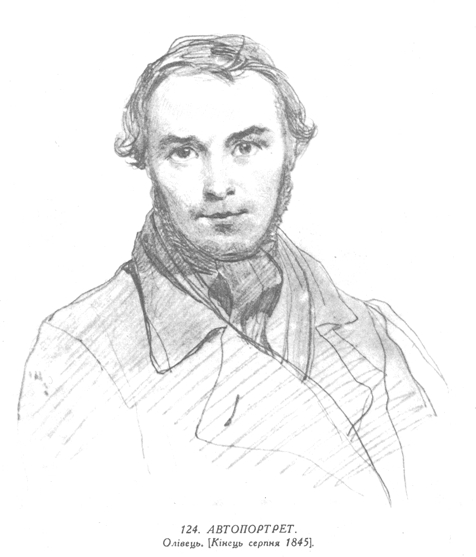 Taras Shevchenko painted many self-portraits and also depicted himself as a figure in a number of other works. These self-portraits and self-depictions offer another view of Shevchenko's creativity, of his projected self-image, and of his personality. Taras Shevchenko painted many self-portraits and also depicted himself as a figure in a number of other works. These self-portraits and self-depictions offer another view of Shevchenko's creativity, of his projected self-image, and of his personality.
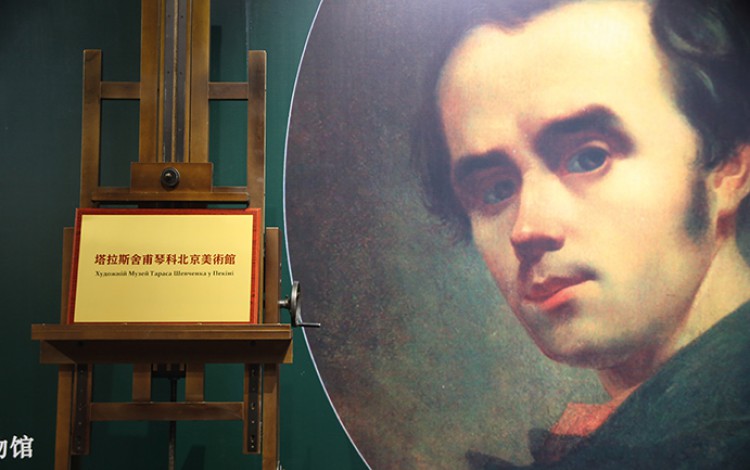 Ukrainian bard Taras Shevchenko unites Ukraine and China in landmark cultural exchange programme that paves way for closer bilateral ties. In 2016, a landmark series of art exchanges took place between Ukraine and China. It culminated with the opening of the Taras Shevchenko Museum in Beijing in September 2016, the first institution of its kind to be funded fully by a foreign government and not the Ukrainian state or diaspora. Ukrainian bard Taras Shevchenko unites Ukraine and China in landmark cultural exchange programme that paves way for closer bilateral ties. In 2016, a landmark series of art exchanges took place between Ukraine and China. It culminated with the opening of the Taras Shevchenko Museum in Beijing in September 2016, the first institution of its kind to be funded fully by a foreign government and not the Ukrainian state or diaspora.
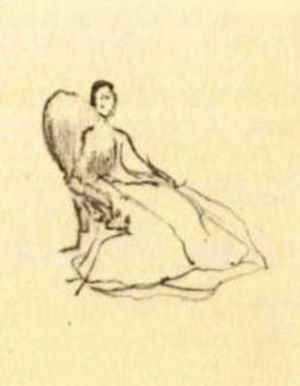 Taras Shevchenko's poem Taras Shevchenko's poem
Tsykl poeziy «V kazemati»
««Ne kydaj materi»,– kazaly...» /
««Ne kydaj materi»,– kazaly, a ty pokynula, vtekla...»
(««Не кидай матері»,– казали...» /
«Не кидай матері»,– казали, а ти покинула, втекла...)
In a prison cell, 1847.
Translated by Irina Zheleznova.
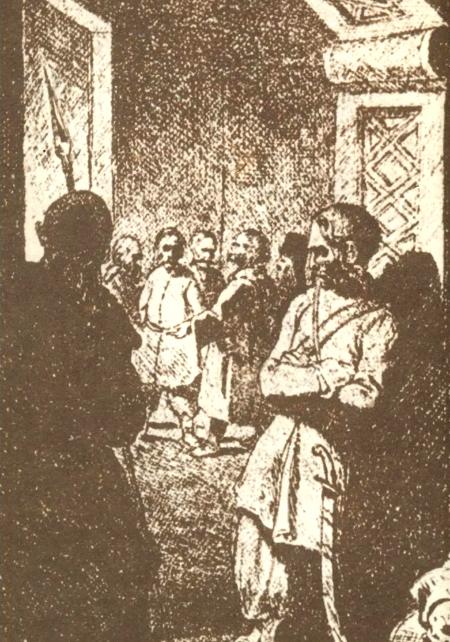 Taras Shevchenko, "Haidamaki" Taras Shevchenko, "Haidamaki"
"Haidamaki" / "Vse yde, vse mynaie — i kraiu nemaie"
("Гайдамаки" / "Все йде, все минає — і краю немає")
1841, S.- Petersburg (С.- Петербург)
Translated by John Weir
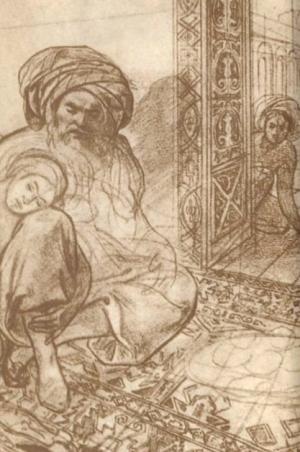 Taras Shevchenko Taras Shevchenko
"Hamaliya" / "Oh, the winds are mute, the tides do not carry"
("Гамалія" / "Ой нема, нема ні вітру, ні хвилі")
[October - first half of November, 1842]
Translated by John Weir
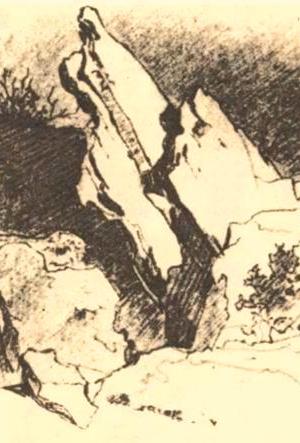 Taras Shevchenko, "The Caucasus" Taras Shevchenko, "The Caucasus"
"Kavkaz" / "Za goramy` gory`, hmaroyu povy`ti...
("Кавказ" / "За горами гори, хмарою повиті...")
Pereyaslav, November 18, 1845
Translated by John Weir
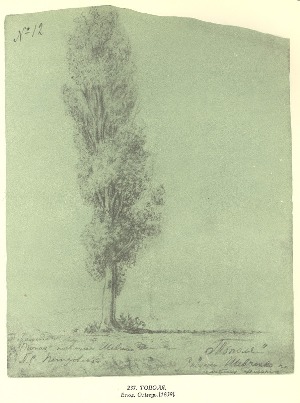 Painting "Poplar" by Taras Shevchenko. Painting "Poplar" by Taras Shevchenko.
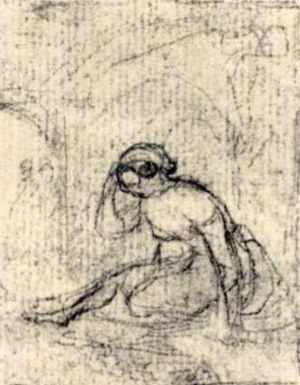 Taras Shevchenko's poem Taras Shevchenko's poem
"Mynaiuchy ubohi sela" /
"My`nayuchy` ubogi sela Ponaddnipryans`ki neveseli"
("Минаючи убогі села"/
"Минаючи убогі села Понаддніпрянські невеселі...")
1859, Cherkasy (Черкаси).
Translated by Irina Zheleznova.
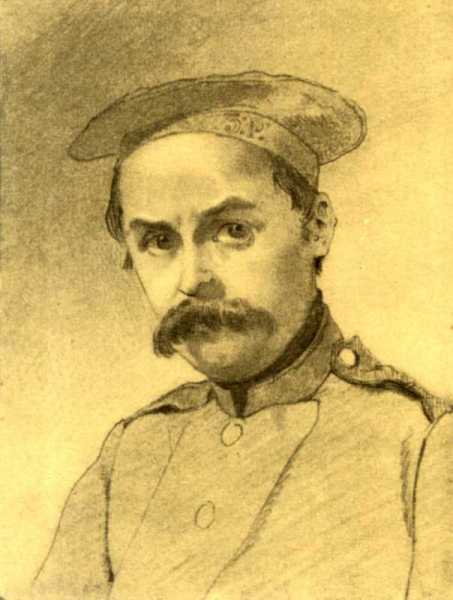 Shevchenko in the Uniform Shevchenko in the Uniform
of the 3rd Company (3 P on the cap)
of the Fifth Batalion. Ors'k Fortress
(June - December 1847). Pencil, paper.
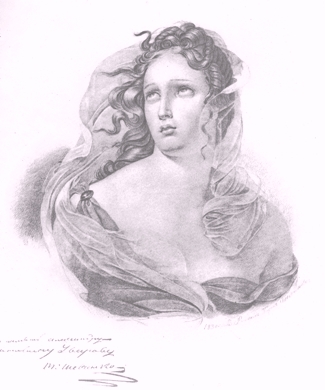 Shevchenko's artistic heritage for us is not less valuable than his poetry. Do not forget that natural gift of drawing was the very first awakened in him and brought him out of the abyss of slavery in artistic elite. His artworks are diverse. Already during his lifetime Shevchenko had a well-deserved honor as outstanding portrait painter. He also performed a large series of landscapes, architectural sketches (including ukrainian antiquity), book illustrations. He was the first of Ukrainian who mastered the etching technique and created in it a number of famous compositions. Our web publication is intended to show the world the great ukrainian artist – Taras Shevchenko. Shevchenko's artistic heritage for us is not less valuable than his poetry. Do not forget that natural gift of drawing was the very first awakened in him and brought him out of the abyss of slavery in artistic elite. His artworks are diverse. Already during his lifetime Shevchenko had a well-deserved honor as outstanding portrait painter. He also performed a large series of landscapes, architectural sketches (including ukrainian antiquity), book illustrations. He was the first of Ukrainian who mastered the etching technique and created in it a number of famous compositions. Our web publication is intended to show the world the great ukrainian artist – Taras Shevchenko.
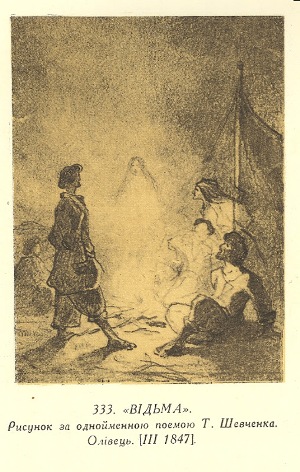 Illustration for poem "Witch" by Taras Shevchenko. Illustration for poem "Witch" by Taras Shevchenko.
Related tags:
|
|
|
|
|
|